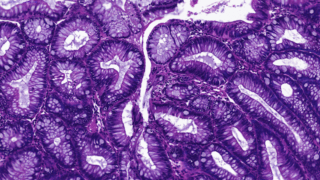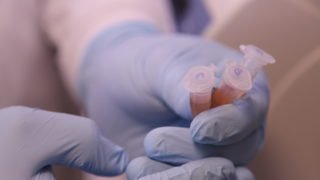Tag: Patients
Search News
Categories
Archives
IBD and bowel cancer
29th April 2019
April is Bowel Cancer Awareness Month. We recently spoke with Dr Kit Curtius about her work which focuses on understanding how normal tissues evolve to become cancerous, with a particular interest in gastrointestinal pre-malignancies such as inflammatory bowel disease.
Read moreTherapy for high-grade glioma
2nd April 2019
A phase I clinical trial that set out to assess the safety of a new combination therapy for a type of aggressive brain tumour has found the treatment to be well tolerated in patients. The trial used a treatment combination of ADI-PEG20, pemetrexed and cisplatin, which showed encouraging efficacy in patients with recurrent high-grade gliomas (HGGs), a disease for which little progress has been made over the last few decades.
Read moreResistance in Ovarian Cancer
13th March 2019
Ovarian Cancer Awareness Month This month is Ovarian Cancer Awareness Month. In the UK each year, around 7,300 women are diagnosed with ovarian cancer, making it the sixth most common […]
Read moreNHS Innovation Accelerator
5th March 2019
Dr Ranjit Manchanda from Barts Cancer Institute, Queen Mary University of London, and Consultant Gynaecological Oncologist at Barts Health NHS Trust, was announced today as one of 13 Fellows to join the NHS […]
Read moreTreatment for advanced kidney cancer
13th February 2019
A combination therapy has shown powerful anticancer responses in patients with a type of advanced kidney cancer in a new international phase III clinical trial (KEYNOTE-426). Treatment with the combination therapy resulted in significant increases in overall survival when compared with the current standard of care, and the findings will help to provide a vital new treatment option for patients with this disease.
Read moreTackling tumour scar tissue could be key to treating pancreatic cancer
11th February 2019
The first study in the world to take a detailed look at scar tissue in human pancreatic cancer has revealed a range of different scar tissue types that could help clinicians predict which patients will respond best to particular treatments.
Read more




